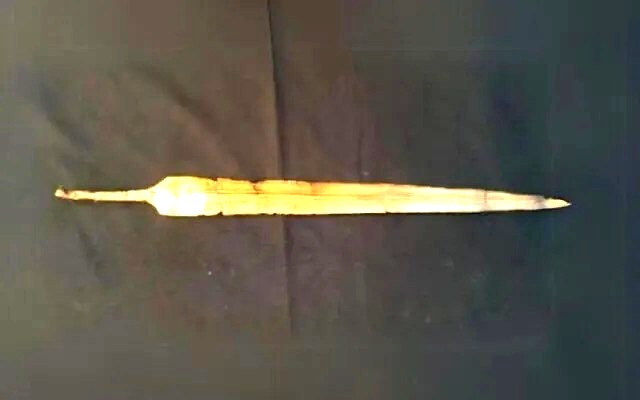The 3,300-year-old sword inscribed with the name of Egyptian pharaoh Ramses II was recently discovered during the excavation of an ancient military barracks in the Nile Delta region, Egypt's Supreme Council of Antiquities said.
Also known as Ramses the Great II. Ramses ruled for more than 60 years in the 13th century BC: major military conquests and monumental constructions can be linked to his name, while he also found time to father more than 100 children.
He is believed to have been the pharaoh who was in power at the time of the Israelites' exodus from Egypt.
The site at Tell Al-Abkain, about 30 kilometers south of Alexandria, was part of a ring of military outposts that protected Egypt's New Kingdom from Libyan and sea raiders, the statement on the sword said.
The New Kingdom period, usually dated from the 16th century BC to the 11th century BC, was the height of ancient Egypt's power and cultural influence. The New Kingdom was largely a period of prosperity and stability, with the Egyptian empire expanding north into the Levant (including modern-day Israel and Syria) and south into Nubia, which today stretches between southern Egypt and northern Sudan.
The sword was found in unusually good condition and was likely a status symbol belonging to a "relatively high-ranking person ," Oxford University Egyptologist Elizabeth Frood told the Washington Post. Frood, who was not involved in the research, called the sword "a very interesting and truly remarkable find".
The excavation also found a number of personal items belonging to the soldiers stationed there, including a collection of carved scarab beetles, cooking vessels, jewelry and an ivory tool used to apply mascara, which was used by both men and women in ancient Egypt to protect the eyes from the sun and against insects, as well as for aesthetic purposes.
The unearthed military barracks consisted of several adobe huts, a building for storing weapons and equipment, and a central cooking area with several clay ovens arranged in a well-organized manner , the Egyptian statement noted. Food remains, mainly fish and animal bones, were discovered in several large ceramic containers.
Source and title image: Neokohn.hu













